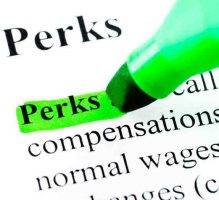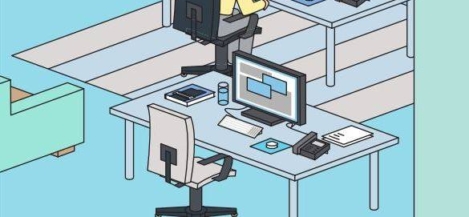December 19, 2016
Direct causal link between wellbeing and corporate performance, claims study 0
 A new report published by IZA World of Labor claims that a rise in workers’ happiness and wellbeing leads to an increase in productivity. The study from economist Dr Eugenio Proto, of the University of Warwick’s Department of Economics and Centre for Competitive Advantage in the Global Economy (CAGE) concludes that companies would profit from investment in their employees’ wellbeing. It cites the experience of large companies that have recently highlighted the importance of employee wellbeing in their company profiles. The authors claims that, until recently, evidence for a link between employee wellbeing and company performance has been sparse and that their own study shows a positive correlation between a rise in happiness and an increase in productivity. Proto believes that finding causal links between employee wellbeing and company performance is important for firms to justify spending corporate resources to provide a happier work environment for their employees and that the available evidence suggests that companies can be encouraged to introduce policies to increase employee happiness.
A new report published by IZA World of Labor claims that a rise in workers’ happiness and wellbeing leads to an increase in productivity. The study from economist Dr Eugenio Proto, of the University of Warwick’s Department of Economics and Centre for Competitive Advantage in the Global Economy (CAGE) concludes that companies would profit from investment in their employees’ wellbeing. It cites the experience of large companies that have recently highlighted the importance of employee wellbeing in their company profiles. The authors claims that, until recently, evidence for a link between employee wellbeing and company performance has been sparse and that their own study shows a positive correlation between a rise in happiness and an increase in productivity. Proto believes that finding causal links between employee wellbeing and company performance is important for firms to justify spending corporate resources to provide a happier work environment for their employees and that the available evidence suggests that companies can be encouraged to introduce policies to increase employee happiness.
















 When former Google employee Marissa Mayer joined Yahoo as its CEO in 2012, she inherited the company’s vast problems. Though it was once seen as one of the first tech behemoths, Yahoo’s inability to come up with ground breaking products like Google and others, put it in a slow, steady decline. Mayer was immediately tasked with trying to reinvigorate the stagnating company. Her focus was to find a way to identify and retain talent, while phasing out ineffective employees. However, Yahoo’s new management policies have brought about much debate and criticism from HR experts. A controversial book by journalist Nicholas Carlson titled “Marissa Mayer and the Fight to Save Yahoo!” paints a highly critical view of Mayer’s first years as CEO. In response others have defended her, arguing that she has done the best she can with the resources available, but has become a scapegoat for poor management, like so many other women in powerful positions.
When former Google employee Marissa Mayer joined Yahoo as its CEO in 2012, she inherited the company’s vast problems. Though it was once seen as one of the first tech behemoths, Yahoo’s inability to come up with ground breaking products like Google and others, put it in a slow, steady decline. Mayer was immediately tasked with trying to reinvigorate the stagnating company. Her focus was to find a way to identify and retain talent, while phasing out ineffective employees. However, Yahoo’s new management policies have brought about much debate and criticism from HR experts. A controversial book by journalist Nicholas Carlson titled “Marissa Mayer and the Fight to Save Yahoo!” paints a highly critical view of Mayer’s first years as CEO. In response others have defended her, arguing that she has done the best she can with the resources available, but has become a scapegoat for poor management, like so many other women in powerful positions.
 A new survey by office products supplier Viking claims that a third of workers suffer from stress and yet have no one to talk to about it. The authors of the study claims that these findings correlate strongly with people’s overall levels of fulfilment at work, with 46 percent of those surveyed saying they had negative thoughts about their job several times a week. When it comes to a person’s working environment, the results showed that office workers were more stressed than those working from home. Factors that contributed to these stress levels included working overtime, not taking enough breaks, having no one to talk to, job satisfaction, pressure to succeed. It’s no surprise that a lack of breaks is causing stress, with half of office workers admitting to taking no breaks at all during the day, excluding lunch. Conversely, a massive 61 percent of people working from home said they took two to three breaks throughout the day.
A new survey by office products supplier Viking claims that a third of workers suffer from stress and yet have no one to talk to about it. The authors of the study claims that these findings correlate strongly with people’s overall levels of fulfilment at work, with 46 percent of those surveyed saying they had negative thoughts about their job several times a week. When it comes to a person’s working environment, the results showed that office workers were more stressed than those working from home. Factors that contributed to these stress levels included working overtime, not taking enough breaks, having no one to talk to, job satisfaction, pressure to succeed. It’s no surprise that a lack of breaks is causing stress, with half of office workers admitting to taking no breaks at all during the day, excluding lunch. Conversely, a massive 61 percent of people working from home said they took two to three breaks throughout the day.
 In America at least, the great symbol of corporate conformity is the office cubicle. Satirised in the Dilbert cartoons and a staple in any movie about the degrading aspects of modern working life, the cubicle provides a perfect shorthand way of portraying an individual crushed by the corporate jackboot. Yet what these things miss is the propensity of people to personalise their surroundings and claim a space as their own, even if only for the short time they may be there. This seems to be particularly the case when it comes to office design and so we were much taken with
In America at least, the great symbol of corporate conformity is the office cubicle. Satirised in the Dilbert cartoons and a staple in any movie about the degrading aspects of modern working life, the cubicle provides a perfect shorthand way of portraying an individual crushed by the corporate jackboot. Yet what these things miss is the propensity of people to personalise their surroundings and claim a space as their own, even if only for the short time they may be there. This seems to be particularly the case when it comes to office design and so we were much taken with 
 A quarter (25 percent) of British workers would be willing to accept a lower salary in return for better ‘work perks’ a new survey claims. Employment bonuses, such as flexible working, a company car or free food have become increasingly popular over the last few years, which explains why 55 percent of UK workplaces already offer work perks, the survey suggests. Workers in Wales are most likely to accept a lower salary with almost a third saying they would accept a position for less money if it had better perks. The survey was commissioned by
A quarter (25 percent) of British workers would be willing to accept a lower salary in return for better ‘work perks’ a new survey claims. Employment bonuses, such as flexible working, a company car or free food have become increasingly popular over the last few years, which explains why 55 percent of UK workplaces already offer work perks, the survey suggests. Workers in Wales are most likely to accept a lower salary with almost a third saying they would accept a position for less money if it had better perks. The survey was commissioned by 


 Gensler has announced the results of its Workplace Survey 2016 for both
Gensler has announced the results of its Workplace Survey 2016 for both 








December 15, 2016
Commuting – stressful, annoying or just another opportunity? 0
by Mike James • Comment, Flexible working, Wellbeing
(more…)